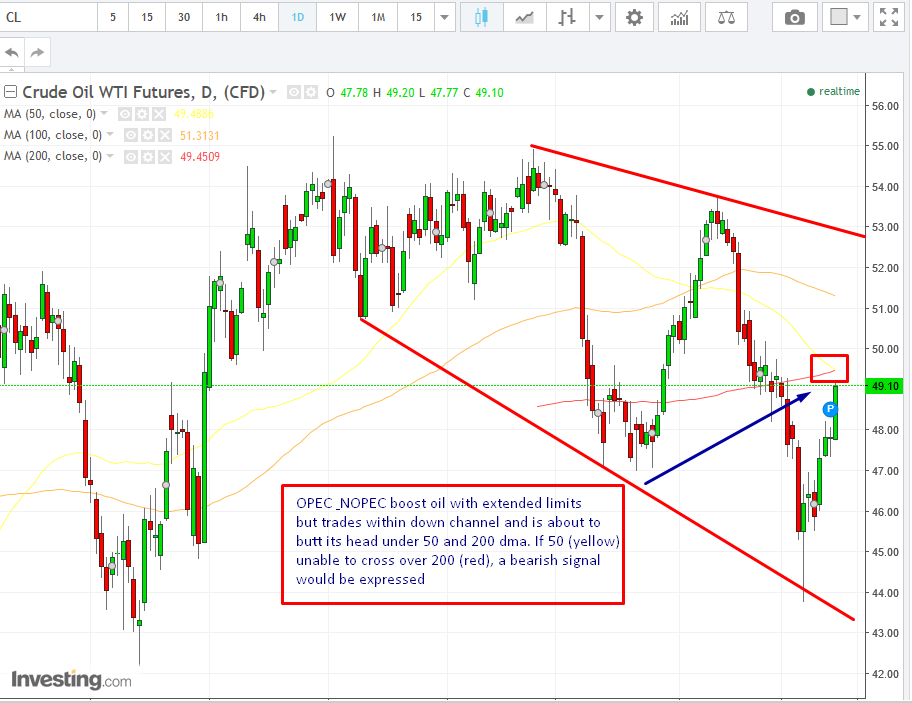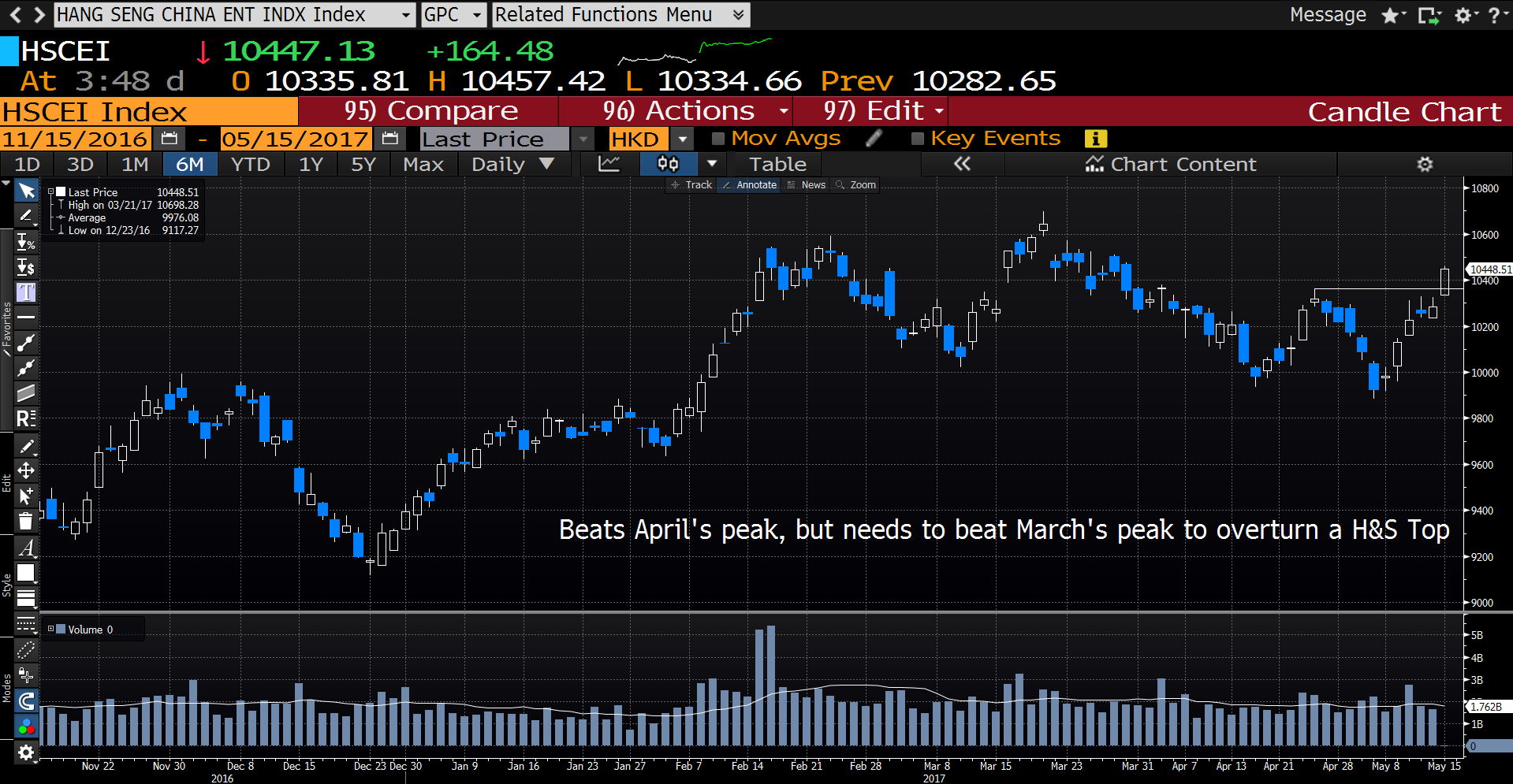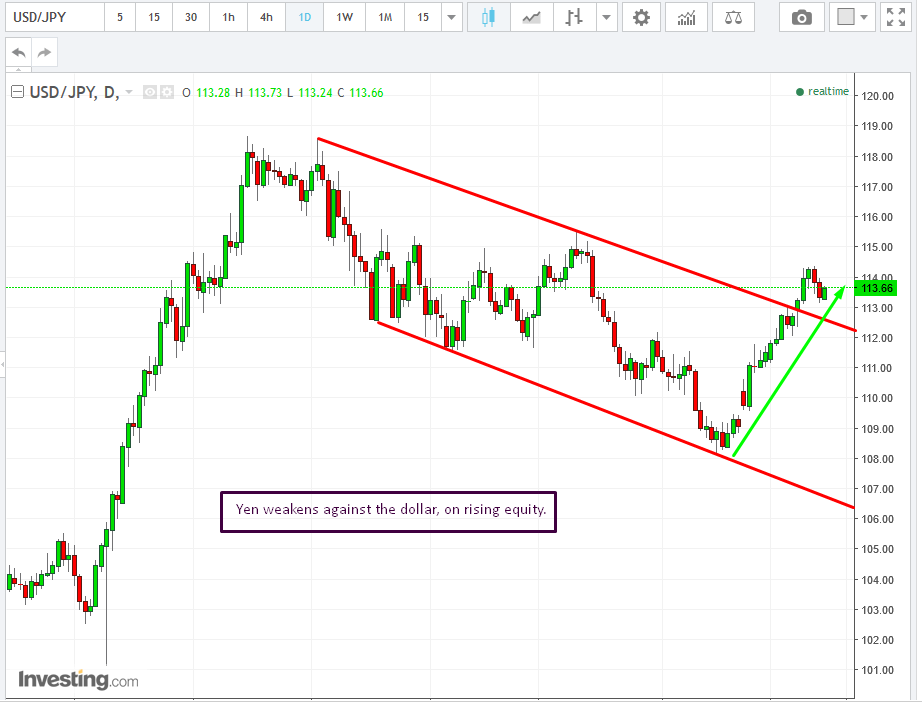by Pinchas Cohen
While investors continue to wait for any details, however scant, on President Donald Trump’s promised infrastructure spending plans, Chinese President Xi Jinping beat the US President to the punch and actually delivered the goods at his weekend summit, which opened yesterday and concludes today. Xi's proposed 'One Belt, One Road' infrastructure initiative aims to 'update' China's ancient Silk Road, the routes connecting the country with trade partners in Europe, Asia and Africa.
In its modern iteration, the project will inject close to $100-billion in spending to update infrastructure including roads, ports and pipelines via an array of global contractors and companies. According to the Wall Street Journal, such multinationals as Honeywell (NYSE:HON), General Electric (NYSE:GE) and Caterpillar (NYSE:CAT), which each have established ties to Beijing, stand to benefit.
The Chinese-led global initiative sparked a familiar kind of optimism, not unlike the animal spirits that buoyed markets after Trump's election, on expectations of, among other things, promises of infrastructure spending. China actually presenting a viable spending plan has lit a fire under equities despite recent concerns of a weakening global economy. It has also proved that Xi, and China, have global rather than nationalistic aspirations. If Chinese leadership was hoping to usurp the US's position as world leader, the market appears willing to hand it to them. Investors’ sole loyalty is to profit.
White House adviser Matt Pottinger said on Sunday that the US welcomes China’s infrastructure connectivity and that American companies can offer their services.
The US recognizes the importance of improving economic connectivity through high-quality infrastructure development, and hence, welcomes efforts from all countries, including China in achieving this.
In a nod of approval, the safe-haven yen declined against the dollar, while gold and the US 10-year Treasury yield advanced.
One of the guests at the Chinese summit was North Korea, much to the chagrin of the US. Additionally, yesterday North Korea fired its seventh ballistic test missile since the beginning of the year.
Yet another geopolitical inconvenience for US President Trump was yesterday's election win by German Chancellor Angela Merkel’s Christian Democratic Union party in the country’s most populous state. This suggests the Chancellor’s support is strong ahead of September's national elections. Merkel is fiercely pro EU, and she opposes him in a conflict over defense spending.

Oil jumped this morning, up almost 2.5%, the most it's moved in four trading sessions. As of 3:00 AM EDT, it traded at the top of its daily range, holding on to gains. This renewed interest in “black gold”—after its free-fall from $100 to $26, from the second half of 2014 through the beginning of 2016—was brought on by Saudi Arabian and Russian energy ministers saying that last November’s OPEC production freeze should be extended.
While the FOMC is still expected to raise interest rates again next month—with jobless claims at a 28-year low and the unemployment rate falling to 4.4 percent—odds of the hike have declined to 70 percent, as the inflation outlook for the US looks to be faltering.
Stocks

- The Hang Seng China Enterprise Index leaped 1.6% this morning, creating a gap. It's now trading at the height of the session, at 10453.37, as bulls maintain the lead. This is the sixth day of its climb.
- The Shanghai Composite Index rose 0.2 percent and the Hang Seng Index advanced 0.7 percent.
- Japan’s TOPIX lost less than 0.1 percent, after dropping as much as 0.6 percent earlier this morning.
- Singapore’s Straits Times Index rose 0.3 percent; South Korea’s KOSPI added 0.2 percent and the Taiwan Weighted Index increased 0.5 percent, extending a 17-year high.
- The Stoxx Europe 600 added 0.2 percent, after touching its highest level since August 2015 last week, but afterward pared some gains. It has now gained 0.14%, and is at 396.20.
- S&P 500 futures rose 0.2 percent after the gauge finished last week down 0.4 percent, its first weekly loss since mid-April.
Commodities
- Oil jumped 2.1 percent to $48.83 a barrel, after climbing 3.5 percent last week. Saudi Arabia and Russia said they favor extending oil-output cuts by global producers through the end of the first quarter of 2018 to shrink a market glut.
- Gold rose 0.3 percent to $1,231.90 an ounce, extending gains to a third day.
- Copper and lead increased 0.7 percent while aluminum rose 0.5 percent. Zinc added 0.9 percent after a three-day slide.
Currencies
- The US Dollar Index slipped 0.18 percent, to 99.069 after falling 0.37 percent Friday. This marks the third consecutive daily decline for the index and its second day back below the 200dma.

- The yen fell 0.26 percent to 113.67 as global equities moved higher.
- The euro added 0.08 percent to $1.0941.
- The Australian and Canadian dollars each rose 0.5 percent to 0.7420, while the Mexican peso climbed 0.6 percent to 18.7042, as oil advanced.
